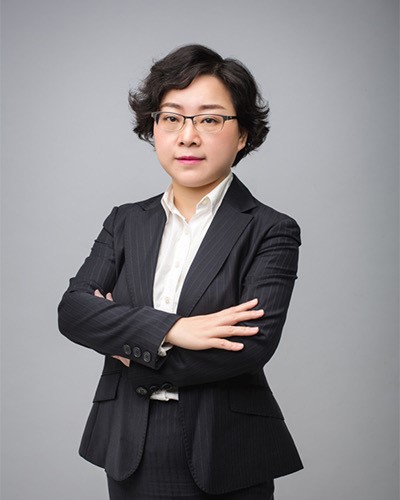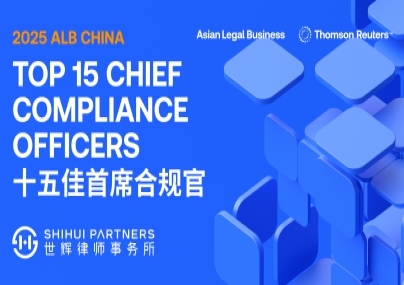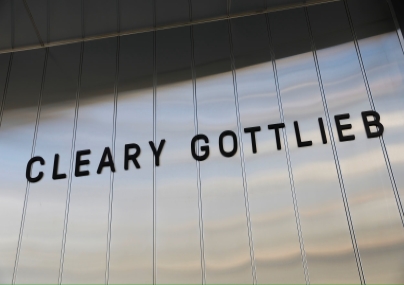
倪弘律师从1997年开始执业,凭借着深厚的法学理论知识及丰富的执业经验为众多国有大型企业、事业单位、集团公司等提供常年及专项法律服务并赢得了客户的信任,其服务的多家顾问单位与事务所的合作年限超过15年。
倪弘律师为众多国内知名房地产开发企业提供全过程法律服务,内容涵盖项目融资、土地获取、开发建设、物业销售、权证办理、物业管理、税收筹划等。倪弘律师在知识产权领域担任国内外多家大型企业法律顾问,涉及知识产权总体战略规划、商标、专利等专项及诉讼法律服务。
ALB: 请分享一下您上任以来的一些亮点?您在这段时间又积累了怎样的管理和领导方面的经验?
倪弘律师:2005年,泰和泰设立管理委员会以后,我作为管理委员会成员之一,逐渐走上了管理的岗位,主要负责事务所的运营工作。上任以来,我们以管理为战略发展的核心,努力将泰和泰总所的管理理念推行到所有分所,从而构建一体化的管理体系。
担任管理委员会委员以来,我感受最深的首先是眼界得到了开阔。2001年,我曾经去香港的胡关李罗律师行学习过一段时间。我非常认同其极具人性化的管理模式以及合伙人之间的和谐关系,并努力将这种和而不同的理念推行到泰和泰的律所文化和合伙人之间的工作氛围中。
另外,我的管理技能也得到了提升。整个泰和泰是一个较为庞大的体系,需要我们调动各方经验和积极性去实现各委员会之间的高效配合。以纪律委员会为例,它不仅担负起了处理投诉的重要职能,还协调合伙人之间和律师之间的关系。在这样的过程中,我们将纪律委员会的职能发挥到了极致。同理,在业务委员会的牵头下,全国的律师和分所都能够分享到总所过往办理案件的过程中积累的知识和经验,形成了知识管理的成果。可以说,在各个委员会彼此配合的过程中,我也一直在提高自身的管理技能。
ALB:作为创立于中国西部的大所,您认为西部的律师事务所有着怎样的特点呢?
倪律师:泰和泰律师事务所崛起于西部,经过20年的发展已成为一家走向全国、布局全球的大型综合性律师事务所,从泰和泰的发展历程来看,我认为:首先,从律师事务所发展的角度来讲,相比于北上广的律所,西部律所想要在影响力和布局上辐射全国会更加不易。其次,西部城市的客户对于法律的消费意识、法律服务的接受度以及他们对律师的期待等方面可能会显得较为粗放,但泰和泰一直坚持用先进的理念、高效的管理和专业化的人才来满足客户的需求,为客户提供堪比北上广一流律所品质的法律服务,这也是泰和泰成长到今天能够辐射全国、走向世界的重要原因。
ALB:您认为律所文化有着怎样的重要性?您致力于在律所内部培养怎样的文化?
倪律师:自成立之初,泰和泰就非常重视律所文化。我们一直秉承着“泰而不骄,和而不同”的文化,并且在很多方面展示给我们的客户、合伙人、律师乃至整个行业。
首先,泰和泰的名称起源于论语的“子曰君子泰而不骄”以及我们对律师关系的愿景:“和而不同”,我们希望能够向外界展示一个拥有丰富文化底蕴、人才济济、和谐并济的律所形象。
其次,在律所logo上,我们也十分用心。在设计之初,我们希望它能以一个中国风的形象向外界传递我们的理念。为此,最终呈现出来的logo方正整洁,是易经“泰”卦的变体。
第三,在用人理念方面,我们一直以人为本,尊重、重视人才的发展,为其提供清晰明确的成长通道和发展机遇,通过这样的激励和文化的倡导,让更多的人才将泰和泰视为支撑事业发展的平台,我们也希望能够通过他们辐射出我们努力为社会创造的价值。
ALB:在招揽人才和人才保有方面,您有着怎样的策略?
倪律师:人才招揽和保有是我们20年来一直都在思考的问题,我们也在不断完善这方面的机制。泰和泰坚持广泛吸纳与内部培养的兼收并蓄,但又各有侧重。
首先,人才队伍扩张的主要要素是内生式培养为主,吸引外部优秀人才为辅。这一策略非常适合泰和泰。在成立之初,泰和泰在吸纳本地人才、人才与律所的理念融合等方面都面对着一定的挑战。因此我们一开始就积极地吸收年轻律师,帮助他们从一张白纸成长为符合泰和泰理念的、优秀的合伙人。从第一名助理成长为第一位高级合伙人,再到越来越多的助理如此成长起来,这个过程贯穿了泰和泰20年发展进程。
其次,泰和泰总部和分所之间采用着不同的人才招揽和保有的策略。在一个新的城市开设分所后,我们需要让它慢慢积累、沉淀,通过当地的合伙人去寻找志同道合的人才,而当人才吸纳达到一定程度后,再在当地以内生式培养、外引兼备的方式培养出更多的人才。
自从2003年起,泰和泰每周五都会举行论坛,让年轻律师学习来自资深律师的经验分享。在此基础上,我们还设立了培训周、沙龙等活动,积累了大量的优质内容,使得律师在日常办案之余,还能系统性地去学习某方面的专业知识和职业技能。2014年,我们设立了泰和泰律师学院以及专项的知识管理基金,这些都为我们培养人才起到了非常积极的作用。此外,我们还建立了泰云学院,在线上线下提供优质课程,覆盖泰和泰的全国所有分所,将人才培养常态化。2019年,我们成立了青年发展委员会,帮助青年律师实现自我培养。
ALB:对于科技手段在律所管理方面的运用,您有着怎样的看法?您上任以来,科技手段的运用经历了怎样的发展?未来一两年又有怎样的计划?
倪律师:我们很早就意识到,作为新时代的律所,一定不能固守原有的工作模式, 科技手段的运用,使得我们与科技、工具产生了更多场景交互,能够让我们的律师由办公室的作业模式升级为跨时区、跨部门、跨网络、跨系统的团队合作模式,使得团队与团队、团队与律师、律师与律师之间能够深入沟通、加强效率、节约成本,有效进行风险管控,高效执行决策层的战略目标,精准帮助律所及律师团队科学化地实现持续稳定盈利。今年疫情之前,我们在科技手段运用这方面就已经搭建起了框架,并嵌入到日常的律所管理之中。
为了更好的实现上述理念,近年来泰和泰在通过技术手段变革工作方式方面做了很多尝试。我们正式发布了泰云3.0,集合律所智能化、一体化管理的“云在线”四大核心模式,分为云管理、云办案、云智库、云课堂,致力于提供云端智能办案管理平台。将内部的信息化系统集成,逐步实现泰和泰律师事务所品牌统一、资源统一、市场统一、作业模式统一的一体化运营战略目标。
未来,随着市场的发展和客户的需求,泰和泰将致力于成为新生代智能化律所建设的标杆,实现国际化律所发展的跨越,为全球法律服务行业的生态化进程贡献力量。
ALB:对于如贵所这样规模的律所来说,在这个市场上取得成功的关键是什么?您认为目前您作为律所的管理合伙人,在哪些方面做得比较好?在哪些方面存在改善的空间?
倪律师:泰和泰在市场上取得成功主要有两方面的原因:
首先是专业化发展的差异化特征。专业化发展离不开当地市场,在当地市场和传统业务里生根的基础上,我们在业务领域里精细化分工,组建起既掌握专业化知识又了解业界动态的“专家型”律师团队,为客户提供触手可及的法律服务,使泰和泰的各个分所都能够成为最了解当地、最接地气的律所。同时,我们还打破了地域限制,在一体化的知识管理体系下,全国各分所的法律中心能够掌握全国性、全域化的知识,而不是拘泥于某一地、某一团队。比如,当一位成都的客户需要采购法律服务时,他所看到的成都当地律师的背后,其实是全国法律中心人才和知识的支撑。
其次,在战略布局方面,泰和泰从西部走向全球,我们根据自身特点,确立了具有战略意义的要地,我们的每一次布局都是有策略的,努力让各地办公室的优势形成一个互补的网络,建立起覆盖全国的规模化平台。
在未来,我们还会更好地去平衡差异化发展与内部管理规划,帮助分所在当地真正地拥有一个更加可观的市场占有份额。
ALB Conversations: Ni Hong, Partner and Member of Management Committee at Tahota Law Firm
Ni Hong started practicing since 1997. With her profound knowledge of law and rich practice experience, Ni has provided long-term professional legal services for many state-owned large enterprises, institutions and group companies and won the trust of clients. She has maintained a good cooperation relationship with many of her clients for over 15 years.
Ni provides whole-process legal services for many well-known real estate development enterprises in China, covering project financing, land acquisition, development and construction, property sales, warrant management, property management, tax planning, etc. Ni has served as legal counsel for many large enterprises at home and abroad in the field of intellectual property, involving general strategic planning of intellectual property, trademark, patent and other special and litigation legal services.
ALB: What have been some of your highlights from your time in charge? And what are some leadership lessons you have learnt?
Ni Hong (Ni): I started to be one of the Executive Committee members since the Management Committee of Tahota Law Firm was established in 2005 and then gradually took a management position. Since I took office, we have taken management as the core of Tahota’s strategic development and endeavored to implement the management philosophy of Tahota’s Headquarter to the practice of its branches to build an integrated management system.
Since I took the position as management partner, the first thing I felt is that my horizon has been greatly broadened. In 2001, I have had the honor to learn in Woo Kwan Lee & Lo Law Firm in Hong Kong for a while. I highly agree with its human-oriented management model and harmonious relationship among partners. And I have been endeavoring to implement the management philosophy of harmony in diversity into the culture of Tahota Law Firm and working atmosphere among partners.
In addition, my management skills have also been improved. The entire Tahota Law Firm is a relatively huge system itself, and we need to mobilize the experience and enthusiasm of all parties to achieve efficient cooperation among all the committees. Taking the Disciplinary Committee as an example. It not only performs the important function of handling complaints, but also coordinates the relationship between partners and lawyers. Owing to a process as such, we have brought the functions of the Disciplinary Committee into full play. In the same way, under the leadership of the Business Committee, all the lawyers and branch offices across the country can access to the sharing of the accumulated knowledge and experience of handling cases by the Headquarter, which formulates knowledge-management results. It can be said that in the process of cooperating with each committee, my management skills have been improved.
ALB: As a big law firm founded in western China, what do you think are the characteristics of law firms in western China?
Ni: Established in the west, Tahota has become a large comprehensive law firm covering many parts of China and the world after 20 years’ development. Looking back, I believe that first of all, in terms of the development of law firms, it will be more difficult for the law firms in western China to spread its influence and layout throughout the country, compared with the firms in Beijing, Shanghai and Guangzhou. Secondly, the clients in western cities may appear to be more extensive in terms of their legal consumption awareness, acceptance of legal services and their expectations of lawyers. However, Tahota has always been upholding advanced concepts, efficient management and professional talents to meet customers’ needs and providing clients with legal services comparable to the quality of the top-notch law firms in Beijing, Shanghai and Guangzhou. This is also an important reason why Tahota has grown to radiate its influence across the country and march into the world.
ALB: How important is law firm culture, according to you? What kind of internal culture are you looking to foster?
Ni: Since Tahota’s establishment, Tahota has attached great importance to law firm culture. We have been adhering to the culture of “Poised but not arrogant, and harmony in diversity”, and this culture has been shown in many aspects to our clients, partners, lawyers and the whole industry.
First of all, the name of Tahota came from one saying in The Analects of Confucius: “A gentleman is poised but not arrogant” and also our vision of lawyer relationship: “Harmony in Diversity”. We hope to show the outside world an image of rich cultural deposits, talented people and harmonious cooperation.
Secondly, we also paid great attention to firm’s logo. At the beginning of the design, we hoped it could convey our philosophy and mindset to the outside world with a Chinese-style image. Therefore, the logo is in a square and neat shape, also a slight variation of “Tai” in the Book of Changes.
Thirdly, in terms of employment concept, we have always been people-oriented and respected and valued the development of talents, and provided them with clear growth channels and development opportunities. Through such incentives and cultural advocacy, it is hoped that more talents can regard Tahota as a platform to support their career development and we also hope to radiate the value we created for the society through them.
ALB: how would you describe your hiring and talent retention strategy?
Ni: Talent recruitment and retention are issues we have been thinking about for the past 20 years and we have been constantly improving the mechanism in this regard. Tahota adheres to the well-coordinated combination of extensive absorption and internal training while maintaining each approach’s focus.
First of all, the major factor for the expansion of talents team is internal training, supplemented by attracting outstanding external talents. This strategy is very suitable for Tahota. At the beginning of Tahota’s establishment, it has encountered certain challenges in absorbing local talents and integrating talents with the ideas of the firm itself. Therefore, we focused on attracting local young lawyers since the very beginning and developed them from a piece of blank paper into excellent partners in line with Tahota’s ideas. Since the first assistant who has been developed into the very first senior partner, there has been more and more assistants who have taken the same development path. This process has run through Tahota’s 20-year development process.
In addition, Tahota Headquarter and branches have adopted different talent recruitment and retention strategies. After opening a branch in a new city, we need allow it to accumulate and settle and search for the like-minded talents through local partners. When there is a certain level of talents absorbed, we will make a combined effort by training internally and recruiting from the outside to cultivate more talents.
Since 2003, Tahota has held forums every Friday to allow young lawyers to learn from the experience-sharing by senior lawyers. On this basis, we have also set up training weeks, salons and other activities. A great deal of good-quality content has been accumulated during this process, enabling lawyers to learn professional knowledge of a certain aspect and professional skills. In 2014, we established the Tahota Academy of Lawyers and Special Fund for Knowledge Management, which have played a very positive role in cultivating talents. In addition, we have also established Tahota Cloud School as an approach to normalizing talent training which provides quality online and offline courses accessible to all branch offices. And in 2019, we established the Youth Development Committee to help young lawyers achieve self-cultivation.
ALB: How would you describe your approach to technology? How has the use of tech at your firm evolved since you started at the helm, and what is your blueprint for the next year or two?
Ni: We realized early on that, as a law firm in the new era, we must not stick to the previous working model. The use of technologies has allowed us more interactions with technology and tools in more scenarios and it also allowed our lawyers to upgrade their office-working model to a team-work model featuring cross-time zone, cross-department, cross-network, and cross-system. This enables in-depth communication between teams, teams and lawyers, lawyers and lawyers, and also helps to improve efficiency, save costs, and effectively control risks, efficiently implement the strategic goals of the decision-making level, and accurately helps the law firm and the lawyer team to scientifically achieve sustained and stable profitability. Before the epidemic this year, we had built a framework for the application of scientific and technological means and embedded it in the daily management of law firms.
In order to better realize the above concepts, Tahota has made many attempts in recent years to transform its working methods through technological means. We officially released Tahota Cloud Online 3.0 which has four core “Cloud Online” modes, including Cloud Management, Cloud Case-handling, Cloud Think-tank, and Cloud Classroom, dedicated to providing a cloud intelligent case-handling management platform. This system can help with internal information systematic integration to gradually realize the integrated operation strategy goal of Tahota Law Firm's unification of brand, resources, market and operation mode.
In future, with the development of market and customers’ needs, Tahota will be committed to becoming the landmark for Neo-gen Intelligent Law Firm and accomplishing the leap to an international law firm and contributing to ecological development of legal service industry around the globe.
ALB: What are the keys to succeeding in this market for a firm of your size and focus? What are you currently doing well, and what are potential areas of improvement for you?
Ni: There are two major reasons for Tahota’s success in the market:
The first is differentiated characteristics of professional development. Professional development is inseparable from the local market. On the basis of taking root in the local market and traditional business, we have refined the division of labor in the business field and formed an “Expert Team” which has both great grasp of professional knowledge and industry trends and is able to provide accessible legal services within reach. This makes all branch firms the most grounded ones that know the best about local cities. At the same time, we have also broken geographical limitations. Under the integrated knowledge management system, the law centers of all branches across the country can master national and global knowledge as opposed to being constrained to a certain place or within a certain team. For instance, when a client in Chengdu is in need of purchasing legal services, what he will see behind the local lawyers in Chengdu is essentially the support of talents and knowledge by the National Law Center.
Secondly, in terms of strategic layout, Tahota has developed from western China to the world. We have established strategically important locations based on our own characteristics. Each of our layouts is strategic, and we have strived to form a complementary network with the advantages of all our branches and establish a large-scale platform covering the whole country.
In future, we will balance better between development with differentiation and internal management planning to help our branch offices to truly have a substantial market share.
ALB Conversations is a weekly series of in-depth Q&As with leaders of law firms and in-house legal departments across Asia. If you are a managing partner or general counsel based in the region who is interested in being a part of this series, please send an email to shiyu.liu@tr.com.
对话ALB”(ALB Conversations)是一系列每周发布的深度对谈类文章,我们将与亚洲各地的律所管理者和企业总法律顾问展开对谈。如果您是执业于亚洲地区的律所管理者或总法律顾问,并有兴趣参与该系列访谈,请邮件联络shiyu.liu@tr.com.


